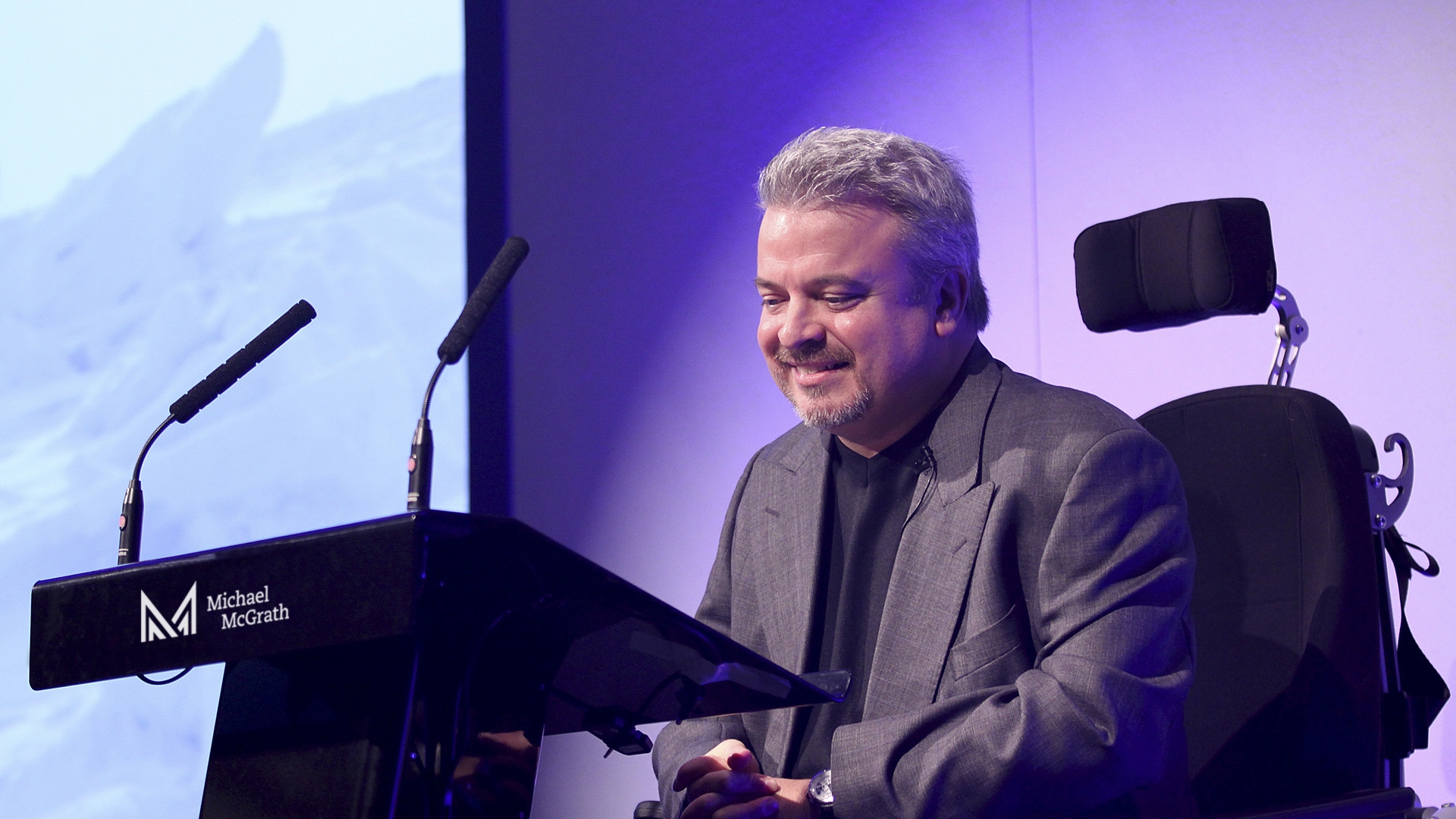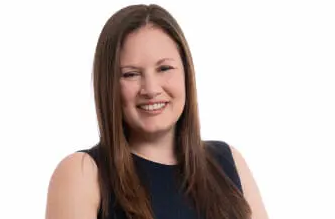
It’s a decade since Michael McGrath, CEO and founder of the Muscle Help Foundation, (pictured below) gave an inspirational speech in public for the first time.
Since then, thousands of people have heard him speak at corporate conferences for Virgin, PwC, Shell and the NHS among many others, at events and for schools, culminating in Michael being listed in the 2016 ‘Power 100’ – Britain’s 100 most influential people with a disability or impairment.
Spanning all ages and from different walks of life, everyone who’s heard him speak has been motivated by his unique and powerful story: his re-launched website – www.michaelmcgrath.co.uk – lets everyone read that story for themselves.
Now, a year on from life-saving surgery and after uttering the formidable words ‘I’m back’ whilst in recovery, a key milestone has been reached: Michael recently celebrated his 51st birthday. This is a fitting platform to celebrate his life, to express his gratitude to those who’ve supported him and to those who’ve been inspired by his ability to engage hearts and minds, but it also offers him a moment to reflect on what the future holds for himself and for the other 6 million disabled people in the UK.
Michael gave this comment on the effect of the fallout from Brexit on the disabled community in the UK: “A few weeks on from Brexit and I’m uneasy about what the future holds, especially for young disabled people in the UK.
Sadly, whilst the narrative from our politicians and the media continues to fuel people’s fears and concerns, my mind-set is being tested. As a role model for disabled people, I feel a sense of responsibility in leading by example, by encouraging those with disabilities to share positive, good news stories with the aim to provide some optimism to help uplift, inspire and boost confidence.
For employers, I suspect priorities are changing as a result of Brexit. Strategies to support people with disabilities to access work are perhaps once again being reviewed. The Government’s ‘Disability Confident’ campaign focuses on recruiting and retaining disabled people for their talents and skills. With over 6 million disabled people (16%) of working age (myself included) in the UK, my real fear now is that the ambition to move 1 million disabled people into work by 2020 is improbable.
I spoke at a conference in 2010, where I quoted a senior PwC source who said that “uncertainty is the new norm” – the commitment to halve the disability employment gap in just four years, let alone put in place sustainable employment opportunities that help disabled people (especially those furthest away from the world of work) become economically active, is not just uncertain but totally unrealistic.
At the launch event in London last year of the 2016 Power 100 listing that revealed Britain’s 100 most influential people with a disability or impairment, Justin Tomlinson (then Minister for Disabled People) said: “We all face different challenges in life… and we all look for somebody that we can be inspired by and latch onto, to see that if we keep pushing, keep trying, then anything is possible”.
Of course disabled people face different challenges in life, some more than others: some 80% of people acquire their disability while in work and with an ageing population, the challenges are evident. Unquestionably, being ‘Disability Confident’ is an opportunity, yet history shows that disabled people have been pushing, trying and achieving for as many years as I care to remember.
Through the work of my charity, I know of many families across the UK that are simply exhausted because all they do is push and try – the consequences of the Brexit bombshell will mean that these same families will inevitably struggle even more. Change is often unsettling and whilst we are where we are, we have to move forwards – for some, this will undoubtedly mean more pushing, trying and struggling. When will the lives of those who need our support the most become a little easier?
How will the appointment of Penny Mordaunt, the daughter of a former paratrooper, whose mother was a special needs teacher and who once served time as a magician’s assistant fare in her new role as Minister for Disabled People? Whilst appearing on reality TV shows is not for everyone, I’m hoping that Mordaunt’s first 100 days in office will make more than just a splash.
Whilst the government recognise that ‘there is more to be done’, I remain ever the optimist that Mordaunt’s arrival will hail a new inclusive era that will see the disability employment gap halved and true equality achieved. Will Mordaunt’s breed of magic be superior than her predecessor’s?
Time will tell.
To move from a place of uncertainty and uneasiness to a place of positivity, I feel we have to collaborate and work together even more. I’m heartened by the messages of support from organisations like the European Disability Forum (EDF) but right now, I need to hear clarity from my Government, I need to feel a greater sense of stability and I need those in power to start communicating a more action-orientated vernacular at this sensitive time of transition. The words of my hero Sir Ernest Shackleton ring true: “Optimism is true moral courage”.



